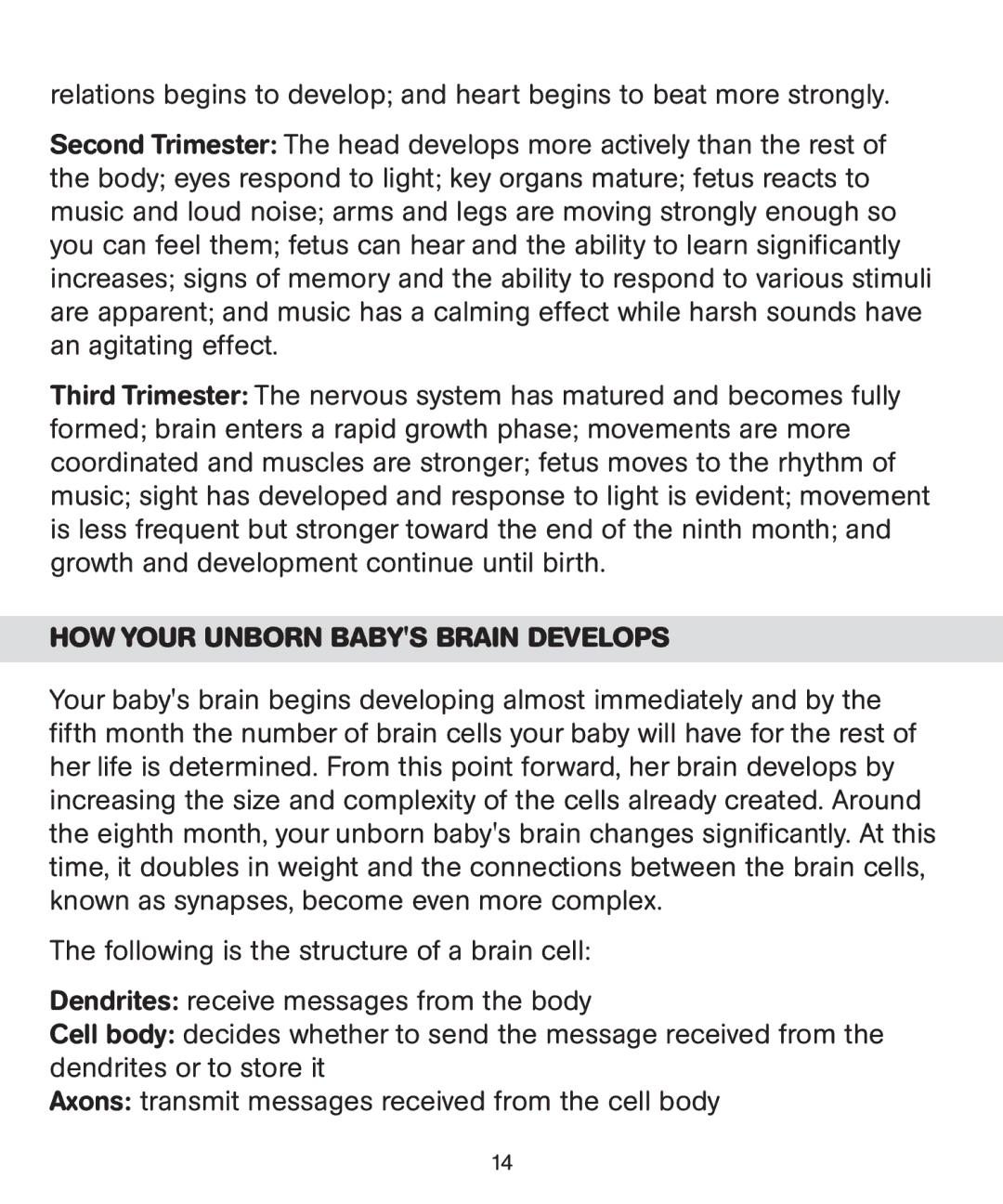relations begins to develop; and heart begins to beat more strongly.
Second Trimester: The head develops more actively than the rest of the body; eyes respond to light; key organs mature; fetus reacts to music and loud noise; arms and legs are moving strongly enough so you can feel them; fetus can hear and the ability to learn significantly increases; signs of memory and the ability to respond to various stimuli are apparent; and music has a calming effect while harsh sounds have an agitating effect.
Third Trimester: The nervous system has matured and becomes fully formed; brain enters a rapid growth phase; movements are more coordinated and muscles are stronger; fetus moves to the rhythm of music; sight has developed and response to light is evident; movement is less frequent but stronger toward the end of the ninth month; and growth and development continue until birth.
HOW YOUR UNBORN BABY'S BRAIN DEVELOPS
Your baby's brain begins developing almost immediately and by the fifth month the number of brain cells your baby will have for the rest of her life is determined. From this point forward, her brain develops by increasing the size and complexity of the cells already created. Around the eighth month, your unborn baby's brain changes significantly. At this time, it doubles in weight and the connections between the brain cells, known as synapses, become even more complex.
The following is the structure of a brain cell:
Dendrites: receive messages from the body
Cell body: decides whether to send the message received from the dendrites or to store it
Axons: transmit messages received from the cell body
14
